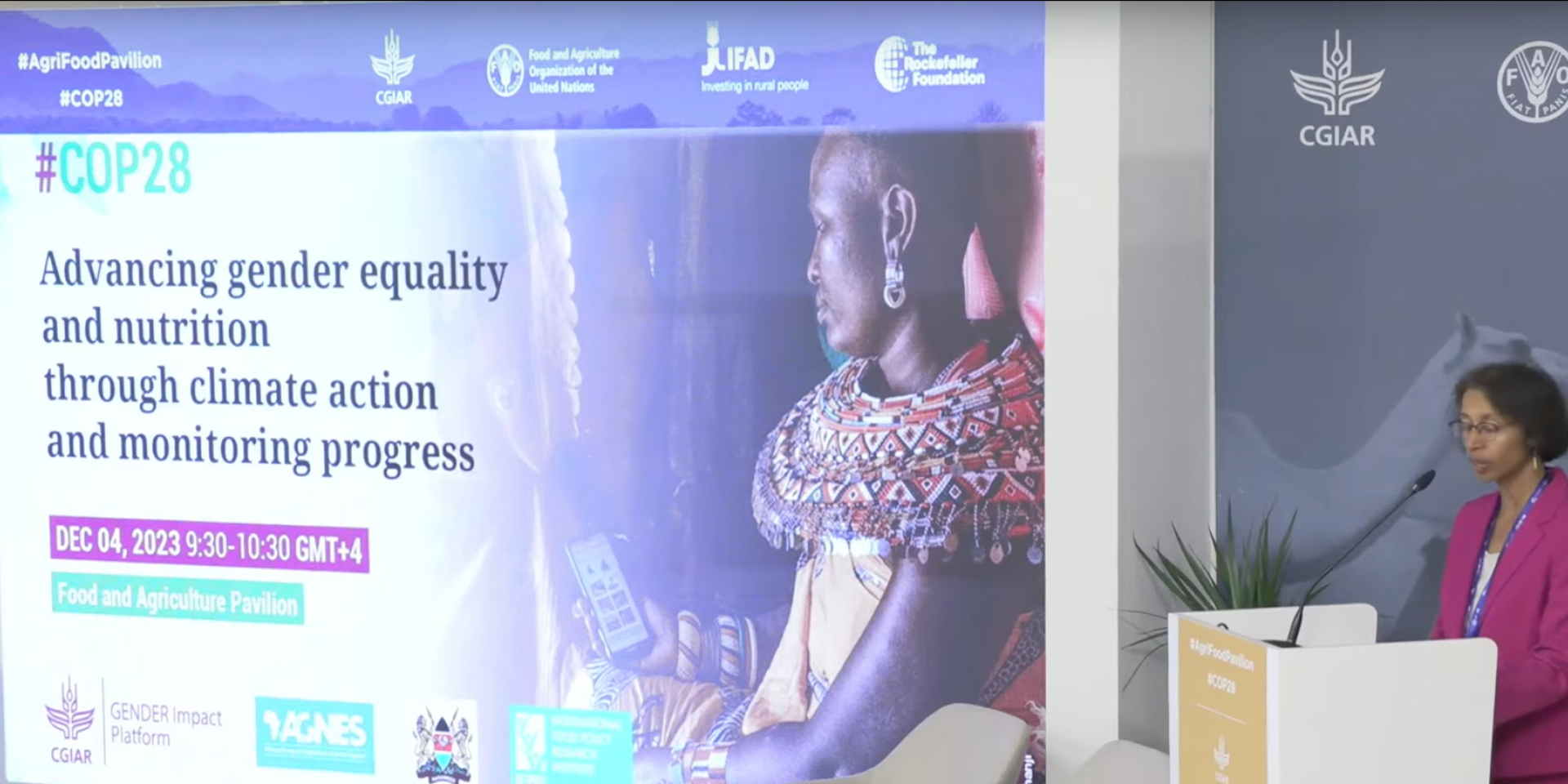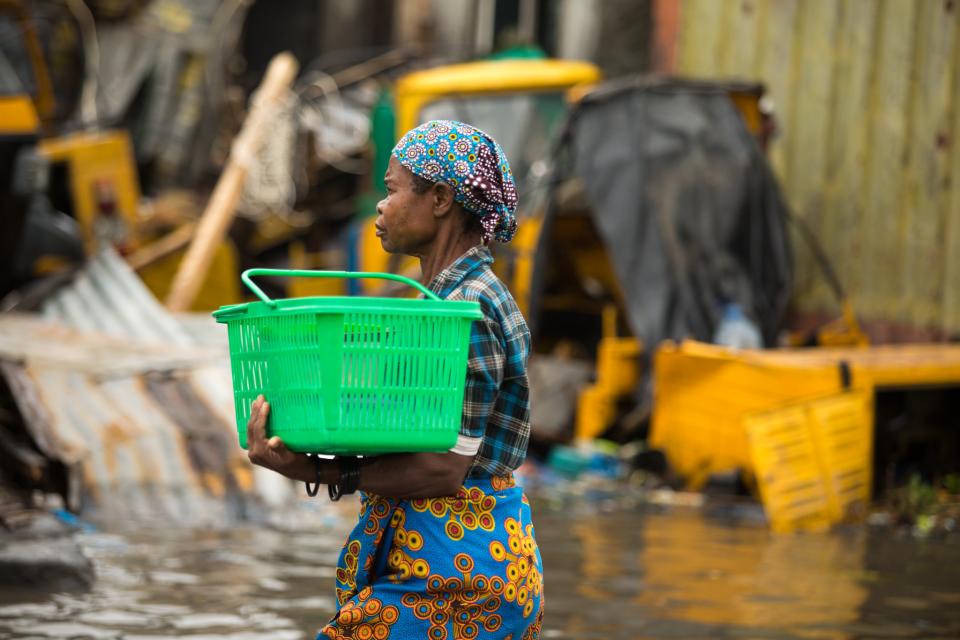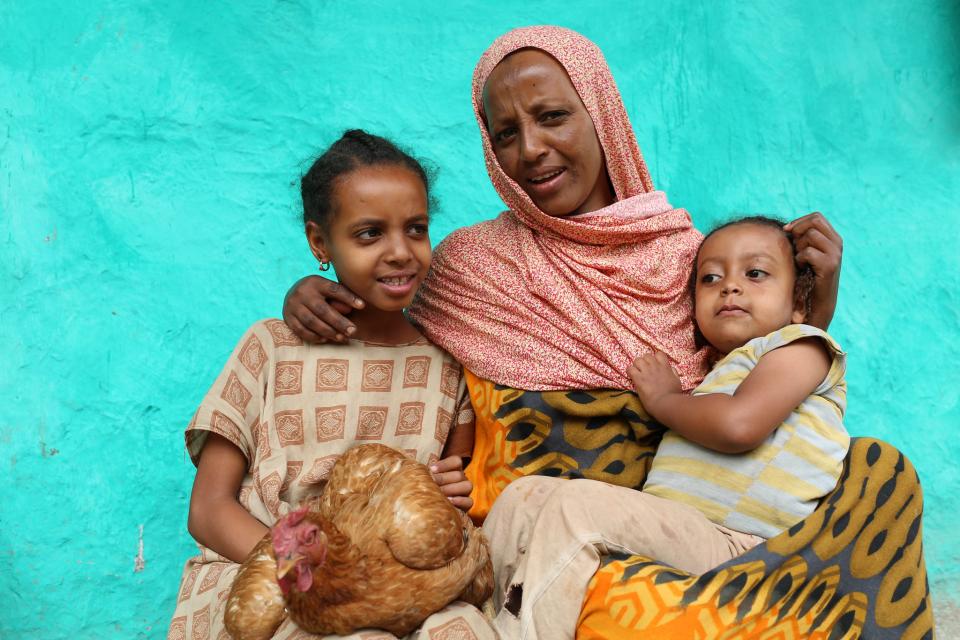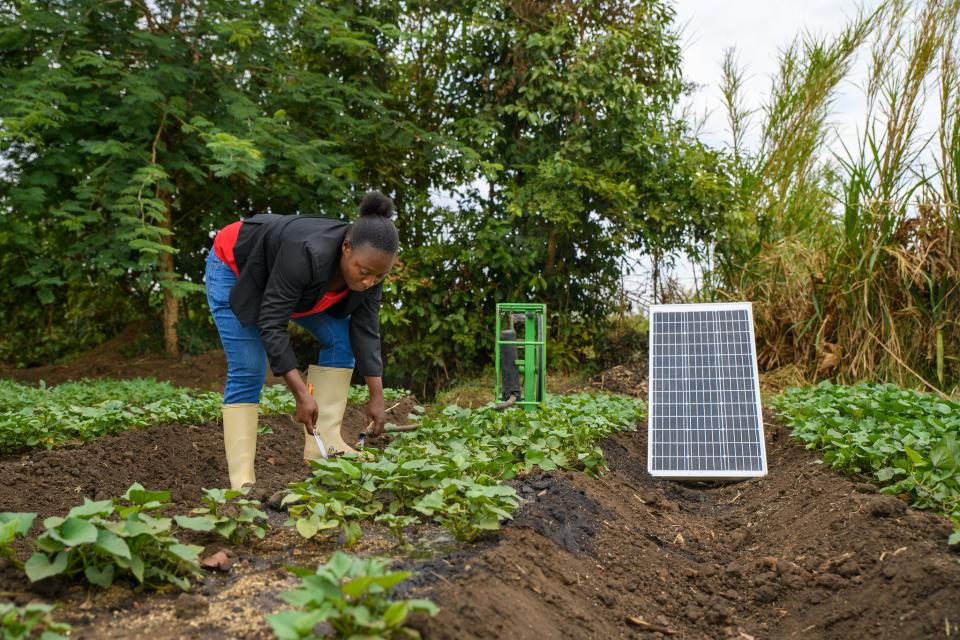COP 28: Institutions, tools and data needed to integrate gender and nutrition into climate policies

On December 4, 2023, the CGIAR GENDER Impact Platform co-organized an event at the Food and Agriculture Pavilion at the 28th session of the Conference of Parties (COP 28) to explore how to advance both gender equality and nutrition through climate action and monitoring.
Women and men have different levels of vulnerability to climate change, given existing gendered roles and norms. Considering women’s relatively lower adaptive capacity, they are also often less likely to take up climate-smart practices in agrifood systems or influence adaptation decisions. These limitations contribute to differential well-being outcomes for men and women, such as nutritional status.
This COP 28 event sought to provide policymakers and practitioners with evidence and tools needed to design and monitor climate actions that build the resilience of communities, considering the needs and priorities of the most vulnerable groups. The session further highlighted results of the sub-national level gender and climate change vulnerability hotspot mapping exercise for the energy and water sectors conducted in Kenya, Uganda and Botswana during 2023.
While opening the session, Bama Athreya, Deputy Administrator, United States Agency for International Development (USAID), highlighted that climate challenges present an increased risk for women and girls who play a key role in food systems. Athreya noted that USAID continues to play a major role in building the resilience of women farmers, including by playing a key role in the recently launched Aim for Climate Innovation Sprint on Gender and Climate Action. The sprint will scale innovations that address the underlying gender inequalities that prevent women from adopting climate solutions.
“We need to tackle the gender inequalities that stand in the way of productivity and food security more than ever to attain prosperous, climate-resilient agriculture and food systems,” said Athreya.
Although many tools are available to support the integration of gender and nutrition into policy processes, Purvi Mehta, Deputy Director, Agriculture in Asia for the Gates Foundation, pointed out that the intersection of gender, nutrition and climate will require a transdisciplinary approach. Mehta also added that institutional capacity to integrate gender, nutrition and climate into policy processes and to coordinate across complex institutional landscapes is low and needs to be strengthened.
“All these three areas will require individual and institutional capacity, especially within the private sector. What are the incentives for the private sector? Why should they see this as huge opportunity to reach out to large numbers of women farmers?,” reflected Mehta.
This session also presented frameworks and tools for integrating gender and nutrition metrics into climate policies, actions and monitoring efforts. Elizabeth Bryan, who is leading the Gender, Climate Change and Nutrition (GCAN) initiative, called for better tracking of the progress toward such policy goals.
“It’s important to consider gender, climate and nutrition goals in parallel when designing and implementing policies, investments and programs to try to minimize trade-offs and take advantage of synergies,” stated Bryan.
Speakers also highlighted the importance of rigorous data and monitoring in showing the key role gender plays in climate action. Huge data gaps stand in the way of effective evaluation.
Yet, CGIAR GENDER Impact Platform Director Nicoline de Haan said that “lots of gender data gaps remain, but we need to prioritize. We have enough data and understanding to at least get the targeting right.”
Some ongoing work to generate better evidence and to support quick integration of gender and nutrition into climate policies is ongoing, particularly with the climate hotspot mapping conducted in Kenya, Uganda and Botswana this year. This work is set to provide an evidence base for transformative approaches, allowing for policy and program designs that target local risks.
“Hotspot mapping allows priority setting and targeting in policy and program design and implementation,” said Patricia Bamanyaki, Director Strategy and Gender at African Group of Negotiators Expert Support (AGNES) and Climate Policy Researcher at Accelerating the Impact of CGIAR Climate Research for Africa (AICCRA).
This event was co-organized with the United States Agency for International Development (USAID), AGNES, the State Department for Gender, and Affirmative Action Kenya and AICCRA.


